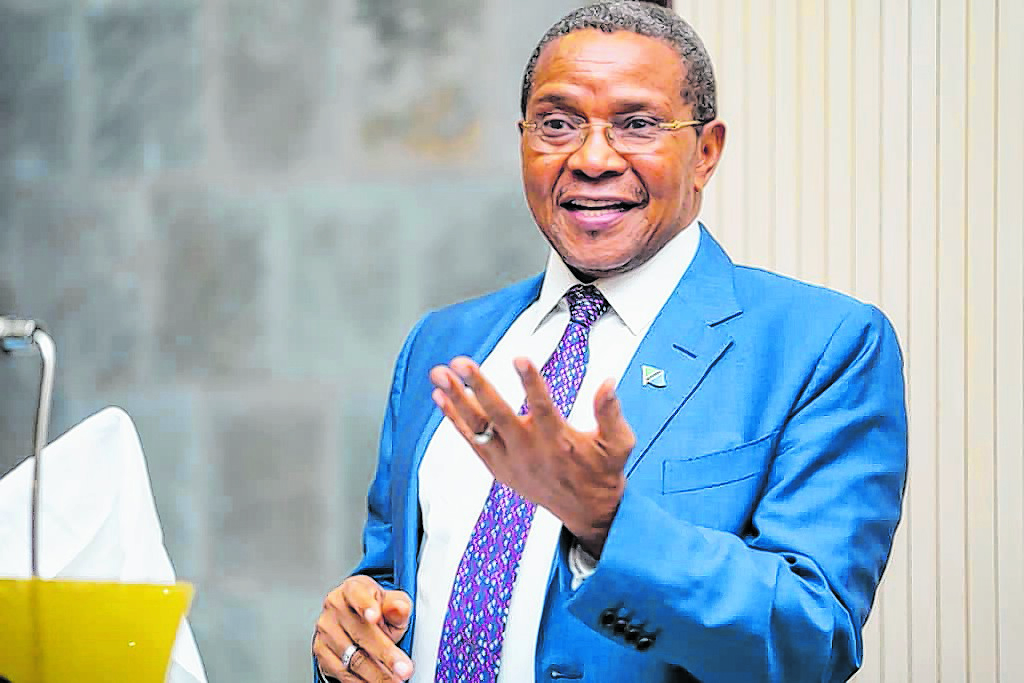Invest in tech to enable digital learning, says former President Jakaya Kikwete

Former president Jakaya Kikwete speaks on collective accountability for financing quality education during the Innovation Week event in Dar es Salaam yesterday. PHOTO | COURTESY
What you need to know:
- He said when he was President, he introduced the use of the internet in teaching and invested heavily in the national fiber backbone with a view to ensuring every school and hospital was connected to internet and if possible one mathematics teacher to teach nationwide.
Dar es Salaam. Fourth-phase President Jakaya Kikwete has stressed the importance of the education sector investing in technology.
Mr Kikwete said the world was shifting to digital learning, thus failure to invest in technology would leave behind youth from Africa, who will end up as spectators of transformation instead of digital economic participants.
He said this when launching an education forum that will be used to discuss education funding. It was organised by the Tanzania Education Network (Tenmet) in Dar es Salaam. The event is one among many taking place during the Innovation Week 2021.
“It is imperative to use science and technology in teaching. Every school needs to be connected to internet,” he said. Citing the Covid-19 pandemic, Kikwete said it has proven how the lack of technology affects teaching.
“We have seen during the Covid-19 era, one of the steps taken was to close schools. Our students did not study, they played games, but in developed countries schools were closed and children continued to study,” he said.
He said when he was President, he introduced the use of the internet in teaching and invested heavily in the national fiber backbone with a view to ensuring every school and hospital was connected to internet and if possible one mathematics teacher to teach nationwide.
On inclusive education, he called on the government and stakeholders to ensure that no child is left behind for lack of education.
“Some think that the girl child is supposed to stay in the kitchen. Others have been left behind for political reasons, we need to involve non-governmental organisations in contributing to education,” he said.
He said due to poor provision of education in the country, there is a risk of half of the existing jobs to disappear by 2050.
Explaining the research conducted by the International Commission on Education of which he is a member, he said the education that was currently being provided in Africa was provided 50 to 70 years ago to developed countries.
“We are still using chalks while developed countries are using tablets. We saw that there are more than 263 million people who were supposed to be in school, but are not, of whom 100 million are in Africa,” he said. He said for those who are in school most do not finish school with majority of them ending up on the road. Sixty seven percent have finished school, but 33 percent have been left behind.
He said due to poor provision of education and technological advances there is a danger of unemployment crisis. “By 2050, 50 percent of jobs will be lost due to the use of machines. There will be cars without drivers.”
“There will be cars without a driver. You want transport, you call it Uba, you use your phone it comes and takes you to the relevant place, maybe, Ubungo Plaza or Millennium tower, “said President Kikwete.
He said apart from unemployment, Africa’s population would reach two billion people. “If those people don’t have the skills, there will be significant economic and social impacts.”
Initially while welcoming Kikwete, the Chairman of Tenmet, Dr John Kalage said the forum will discuss in detail the ways to fund education in the country.
Dr Kalaghe said that it was the 12 meeting since they started education dialogue.
However he noted that the biggest challenge was that a majority of students finished school without having attained any skills,” he said.
“There is need for more investment in the education sector to improve learning enviroment that will ensure they are well equipped with skills,” he said.





